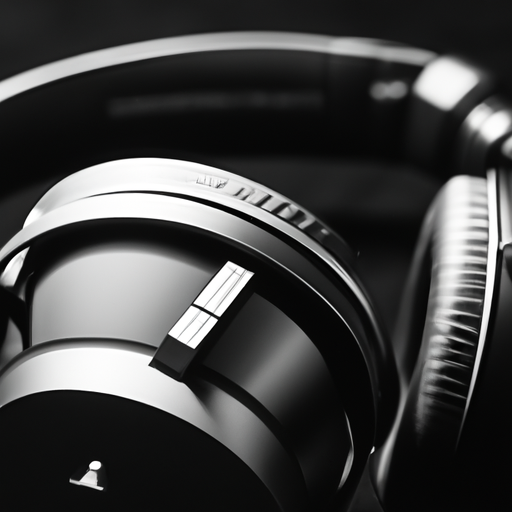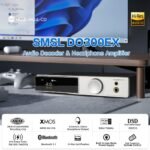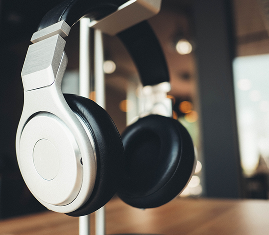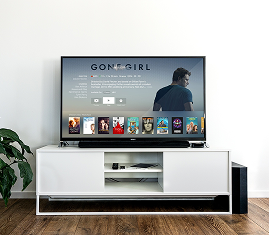So, you’re an audiophile, someone who has a deep appreciation for high-quality audio and the pursuit of the perfect sound. But have you ever wondered about the influence of those audio critics and reviewers? Those individuals who dissect every note, every nuance, and every beat to provide their expert opinion on audio equipment. Well, my friend, in this article, we’re going to explore the world of audio critics and reviewers and the important role they play in the audiophile community. From debunking myths to uncovering hidden gems, these individuals are the gatekeepers of sonic bliss. So, put on your headphones and let’s dive into the fascinating realm of audio criticism.
Defining Audiophile Community
Understanding the term ‘audiophile’
The term ‘audiophile’ refers to individuals who have a deep passion for high-quality audio and take great pleasure in listening to music or other sound recordings. Audiophiles are known for their meticulous attention to detail when it comes to sound reproduction, often seeking out and investing in high-end audio equipment to enhance their listening experience.
Identity and characteristics of audiophile community members
Members of the audiophile community are often characterized by their dedication to achieving the highest level of audio fidelity. They value the pursuit of exceptional sound quality and are willing to invest both time and money into their audio setup. Audiophiles often share their knowledge and experiences with fellow enthusiasts, fostering a sense of community and camaraderie.
The growth and evolution of the audiophile community
Over the years, the audiophile community has grown significantly, thanks to advancements in technology and the increasing availability of high-quality audio equipment. With the rise of online forums, social media groups, and dedicated websites, enthusiasts now have numerous avenues to connect, share information, and discuss their passion for audio. The community has also witnessed the emergence of audio-related events, such as trade shows and meet-ups, further fostering connections among enthusiasts.
Understanding the Role of Audio Critics and Reviewers
Significance of critics and reviewers in the audiophile community
Audio critics and reviewers play a crucial role in the audiophile community by providing valuable insights and evaluations of audio equipment, recordings, and accessories. Their expertise helps enthusiasts make informed decisions when purchasing audio gear, ensuring that they are investing in products that meet their expectations and requirements. Critics and reviewers serve as trusted sources of information, guiding consumers towards high-quality products that deliver exceptional sound reproduction.
Role differentiation between critics and reviewers
While the terms “critic” and “reviewer” are often used interchangeably, there is a distinction between the two roles within the audiophile community. Critics typically offer more detailed and analytical assessments of audio equipment and recordings, delving into technical aspects and providing in-depth analysis. Reviewers, on the other hand, focus on providing a comprehensive overview of a product or recording, highlighting its strengths and weaknesses from a more general perspective.
Expected qualifications and skills of an audio critic and reviewer
To effectively fulfill their roles, audio critics and reviewers should possess a deep understanding of audio technology, sound reproduction, and industry trends. They must have well-developed listening skills, allowing them to discern subtle nuances in sound quality. Strong communication skills are also essential, as critics and reviewers must articulate their evaluations clearly and concisely to convey their findings to the audiophile community. Additionally, knowledge of audio measurement equipment and techniques is advantageous for conducting objective evaluations.
Reviewing Process: How Audio Critics and Reviewers Operate
Breaking down the audio evaluation process
The audio evaluation process typically involves several steps. First, critics and reviewers acquire the product or recording they wish to assess. They then spend a significant amount of time using the product or listening to the recording, carefully analyzing various aspects such as soundstage, tonal balance, dynamics, and detail retrieval. During the evaluation, they may employ specialized audio analysis tools and techniques to measure and quantify specific performance parameters. Finally, critics and reviewers compile their observations and findings into a comprehensive review or critique.
Standards and criteria used in audio reviews
To maintain consistency and provide meaningful comparisons, critics and reviewers adhere to standardized criteria when conducting audio reviews. These criteria include factors such as frequency response, distortion, imaging, soundstaging, and overall sonic performance. Additionally, they may consider factors such as build quality, ergonomics, and value for money when evaluating audio equipment.
Interpretation and communication of audio analysis
Once critics and reviewers have gathered their findings and observations, they are tasked with interpreting and communicating their analysis to the audiophile community. This involves translating technical measurements and subjective impressions into easily understandable language. Critics and reviewers use descriptive language, analogies, and comparisons to convey the sonic qualities of a product or recording, making it accessible to readers who may not possess the same technical knowledge.
The Influence of Reviews on Product Perception and Audiophile Behavior
Influence of critics and reviewers on product’s market status
Reviews from reputable audio critics and reviewers have a significant impact on the market status of audio products. Positive reviews can elevate a product’s reputation and generate interest among consumers, leading to increased sales and success for manufacturers. Conversely, negative reviews can deter potential buyers and harm a product’s market presence. Critics and reviewers thus hold significant power in shaping the perception and desirability of audio products within the audiophile community.
Impact of reviews on consumers’ purchasing decisions
The audiophile community heavily relies on reviews when making purchasing decisions. Enthusiasts often seek out trusted critics and reviewers whose opinions align with their preferences and tastes. A positive review can provide the reassurance and confidence needed to invest in a particular audio product. Conversely, a negative review may lead to the avoidance or reconsideration of a purchase. Reviews, therefore, influence consumers’ choices, helping them navigate the vast array of audio products available in the market.
How audio critics and reviewers shape trends in the audiophile community
Audio critics and reviewers have a significant influence on the trends and preferences within the audiophile community. Highly regarded critics and reviewers often discover and highlight new products, technologies, or recordings, introducing them to a wider audience. Their positive assessments can create buzz and generate interest, leading to increased demand and adoption within the community. Conversely, criticisms or reservations raised by influential critics and reviewers can steer the consensus of the community away from specific products or trends.
Objectivity vs Bias in Audio Reviews
Understanding the concept of bias in audio reviews
Every reviewer possesses their own subjectivity and preferences, which can introduce bias into their evaluations. Bias can stem from personal musical tastes, experiences with specific brands, or personal relationships within the industry. Critics and reviewers must be aware of their biases and strive to minimize their impact on their evaluations. It is essential to separate personal preferences from objective analysis to provide fair and balanced reviews.
Striving for objectivity in audio evaluations
While complete objectivity may be challenging to achieve, critics and reviewers in the audiophile community strive to approach their evaluations as objectively as possible. They rely on standardized criteria, measurements, and comparisons to enhance the objectivity of their analysis. By providing quantitative and qualitative data, critics and reviewers help readers make more informed decisions while understanding that personal preferences may differ.
The issue of commercial influence on audio reviews
The audiophile industry relies on advertising and sponsorships to support publications and websites that feature audio reviews. This creates a potential conflict of interest when it comes to maintaining objectivity and independence. Critics and reviewers must navigate this issue carefully, ensuring that their evaluations remain unbiased and not unduly influenced by commercial considerations. Transparency about potential conflicts and the disclosure of sponsorships or affiliations helps maintain credibility in the audiophile community.
The Use of Technology by Audio Critics and Reviewers
Importance of technology in audio analysis
Technology plays a vital role in the audio analysis process conducted by critics and reviewers. Specialized audio measurement tools, such as microphones, sound analyzers, and frequency response analyzers, enable objective quantification of various performance parameters. These tools provide precise measurements, contributing to the accuracy and credibility of audio evaluations. Additionally, advancements in audio recording and playback technology allow critics and reviewers to reproduce and analyze audio content with exceptional accuracy.
Impact of audio technology advancements on review processes
Advancements in audio technology have revolutionized the review process for critics and reviewers. They now have access to more sophisticated tools, enabling them to conduct comprehensive and precise assessments of audio equipment and recordings. High-resolution audio formats, advanced digital signal processing techniques, and computer-based analysis software have expanded the capabilities of critics and reviewers, enabling them to provide more detailed and accurate evaluations.
Adaptation and application of technology by audio critics and reviewers
Audio critics and reviewers have adapted to the advancements in technology by incorporating new tools and techniques into their evaluation processes. They utilize measurement tools and digital signal processing software to obtain accurate measurements and conduct detailed analysis. Additionally, they leverage online platforms and social media to reach a broader audience and engage with fellow enthusiasts. By embracing technological innovations, critics and reviewers enhance the effectiveness and relevance of their evaluations.
The Critics and Reviewers’ Influence on Audio Manufacturers
Response from manufacturers to critiques and reviews
Manufacturers of audio equipment actively monitor the critiques and reviews from critics and reviewers within the audiophile community. They recognize the value of feedback and use it to improve their products. In response to constructive criticism, manufacturers often release updated versions or address identified issues in future product releases. Additionally, they may collaborate with influential critics and reviewers to gather insights and refine their designs.
Role of critics and reviewers in audio product development
Critics and reviewers play an indirect but influential role in the development of audio products. Manufacturers consider their feedback and analysis to identify areas for improvement and innovation in their designs. The critiques and reviews help manufacturers understand the needs and preferences of the audiophile community, allowing them to develop products that align with consumer expectations. The dynamic relationship between critics, reviewers, and manufacturers drives continuous improvement and innovation in the audio industry.
The dynamic relationship between manufacturers and reviewers
The relationship between manufacturers and reviewers is characterized by mutual benefit and collaboration. While critics and reviewers evaluate and provide feedback on products, manufacturers often provide review samples, technical information, and access to industry events. This symbiotic relationship allows manufacturers to gain exposure for their products and receive valuable feedback, while critics and reviewers gain access to the latest audio equipment and recordings, enabling them to provide informed and comprehensive evaluations.
Challenges Faced by Audio Critics and Reviewers
Issues of credibility and trust in the audiophile community
Maintaining credibility and trust is a significant challenge faced by audio critics and reviewers. As the audiophile community continues to grow and evolve, the number of critics and reviewers also increases, making it challenging for readers to determine who to trust. To overcome this challenge, critics and reviewers must establish a track record of unbiased analysis, transparent disclosures of potential conflicts of interest, and consistent high-quality evaluations.
Navigating the challenges of rapidly changing technology
The fast-paced nature of technological advancements poses a challenge for audio critics and reviewers. Keeping up with the ever-evolving landscape of audio equipment, formats, and software requires continuous learning and adaptation. Critics and reviewers must invest time and effort to stay informed about the latest developments to provide accurate and relevant evaluations. Failure to keep up with technological advancements can lead to outdated reviews and potentially misguide the audiophile community.
Resolving conflicts of interest in the review process
Conflicts of interest can compromise the integrity of audio reviews. Critics and reviewers may face pressures to provide favorable evaluations due to relationships with manufacturers or financial incentives. To address this challenge, transparency and disclosure are essential. Critics and reviewers should clearly communicate any potential conflicts of interest to maintain the trust of their readers. Establishing strict ethical guidelines and maintaining independence is crucial for the integrity of audio evaluations.
The Future of Audio Criticism and Reviewing in the Audiophile Community
Predicted trends in audio criticism and reviewing
The future of audio criticism and reviewing in the audiophile community is expected to be characterized by further integration of technology and evolving consumer preferences. With advancements in AI and machine learning, there may be an increase in the use of automated analysis tools, allowing for more objective measurements and evaluations. Additionally, as the demand for portable and wireless audio solutions grows, critics and reviewers are likely to focus more on evaluating these technologies and their impact on sound quality.
The role of AI and automation in future audio reviews
AI and automation are anticipated to play a significant role in the future of audio reviews. Automated analysis tools can provide objective performance measurements, reducing the reliance on subjective impressions alone. Machine learning algorithms may also be employed to analyze large volumes of subjective feedback from users, providing insights into consumer preferences and guiding manufacturers in product development. However, the human element of subjective evaluation and interpretation is likely to remain crucial for providing comprehensive assessments.
Emerging opportunities and threats for audio critics and reviewers
The digital age presents both opportunities and threats for audio critics and reviewers. The online landscape offers a global audience and increased accessibility for critics and reviewers to share their evaluations. Collaborations with manufacturers and other industry professionals can provide unique opportunities for access to pre-release products and exclusive events. However, the increase in self-proclaimed critics and the spread of misinformation online presents challenges to the credibility of established critics and reviewers. Staying relevant and maintaining trust will require adaptation and continued delivery of high-quality evaluations.
Case Studies: Successful Audio Critics and Reviewers
Profile of successful audio critics and reviewers
Successful audio critics and reviewers come from a variety of backgrounds, ranging from experienced audio engineers and musicians to passionate audiophiles with extensive knowledge. They possess a deep understanding of audio technology and have honed their listening skills over the years. Many successful critics and reviewers have established reputations through their consistency, unbiased evaluations, and ability to communicate complex concepts in an accessible manner.
Analysis of their influencing strategies and methodologies
Successful audio critics and reviewers employ various strategies and methodologies to influence the audiophile community. They often conduct thorough and detailed analyses, incorporating objective measurements alongside subjective impressions to provide a comprehensive evaluation. Successful critics and reviewers build credibility by maintaining independence, transparency, and integrity in their assessments. They engage with their audience, fostering discussions and responding to inquiries, further establishing themselves as trusted sources of information.
Their impact on the audiophile community
Successful audio critics and reviewers have a significant impact on the audiophile community. They shape the tastes and purchasing decisions of enthusiasts by providing reliable guidance and information. Their influence extends beyond individual purchases, as they contribute to the overall trends and preferences within the community. Successful critics and reviewers foster a sense of community by engaging with their audience, encouraging discussion, and sharing their passion for audio. Their impact helps drive innovation, improvement, and growth in the audiophile industry.










